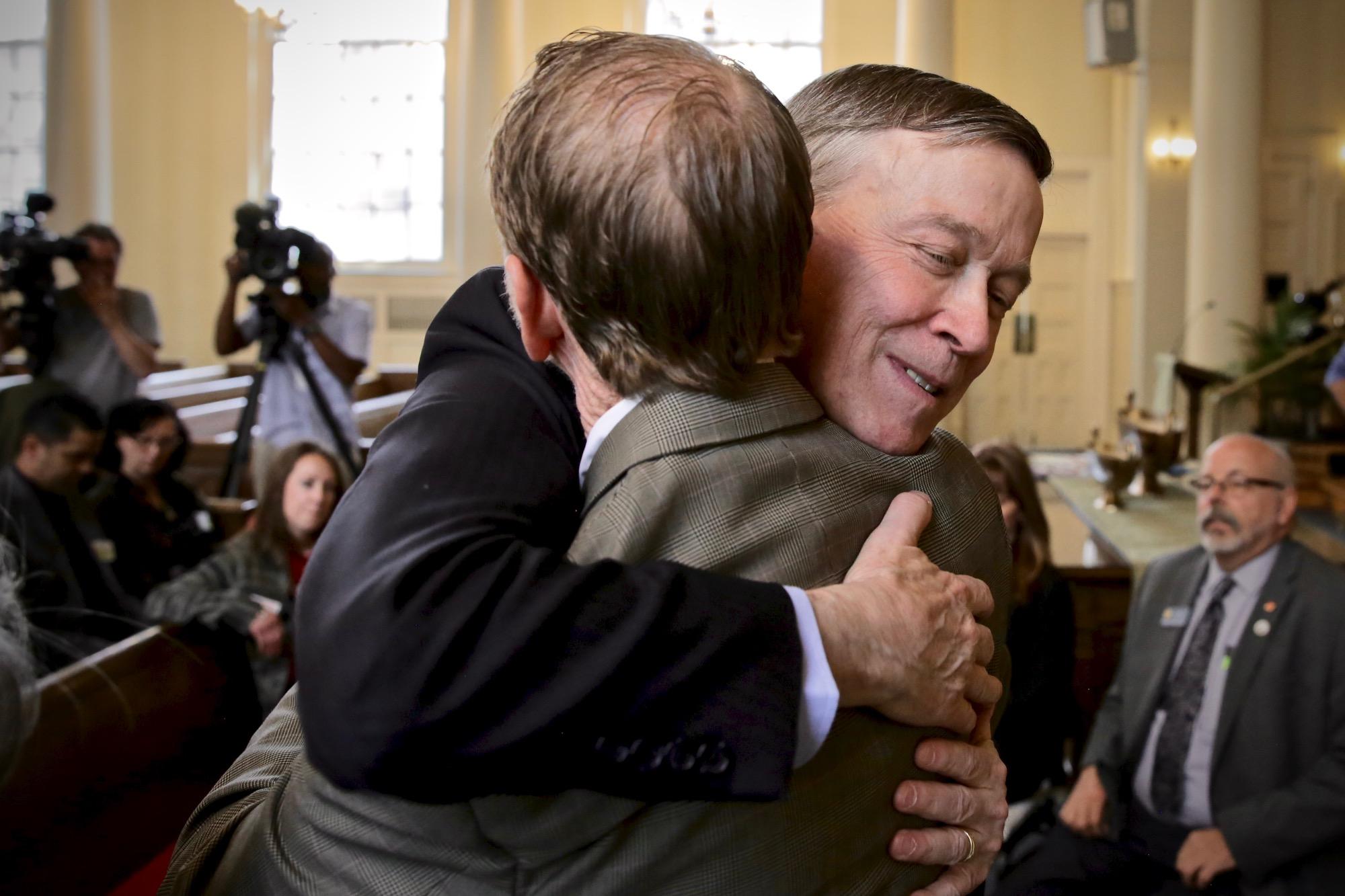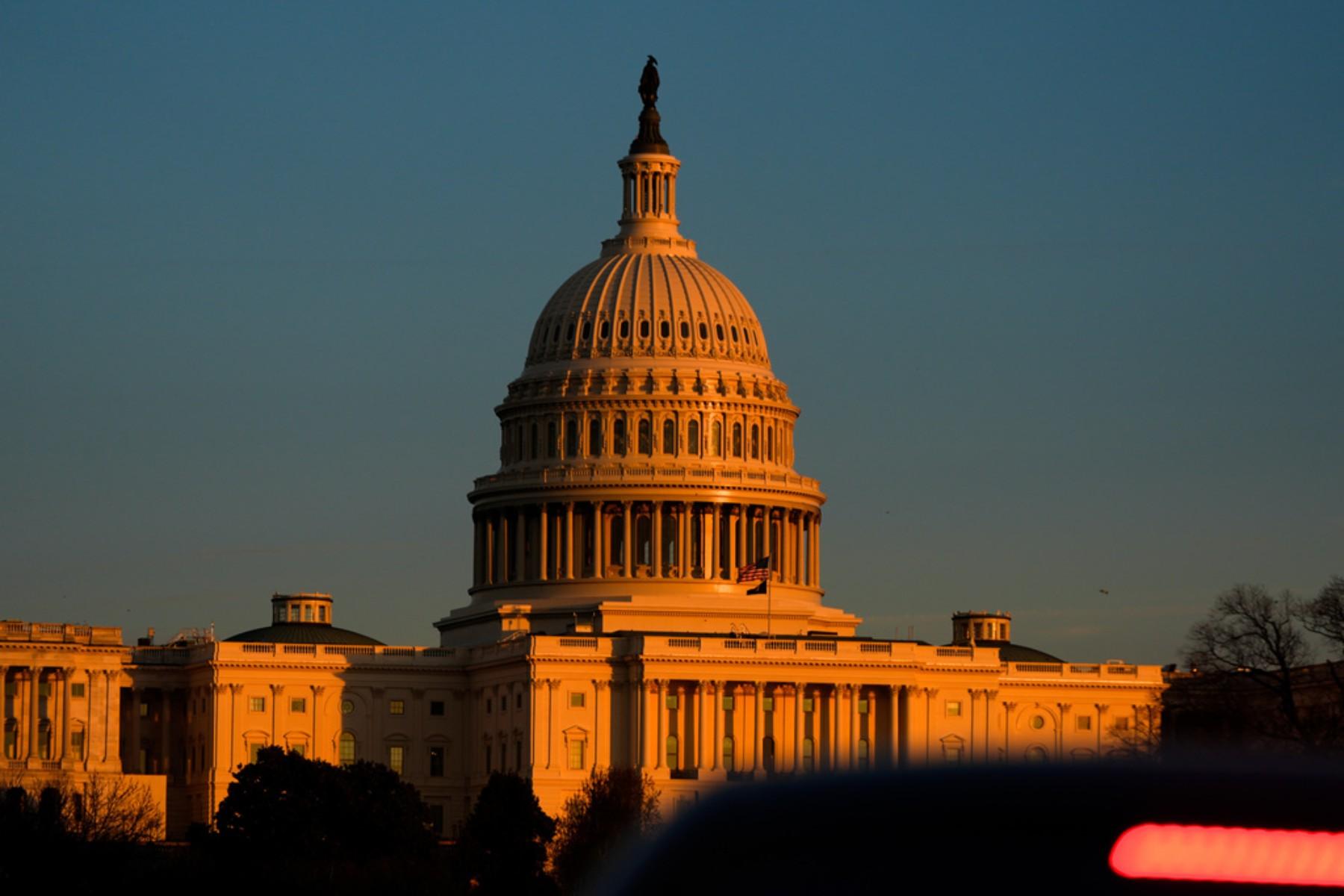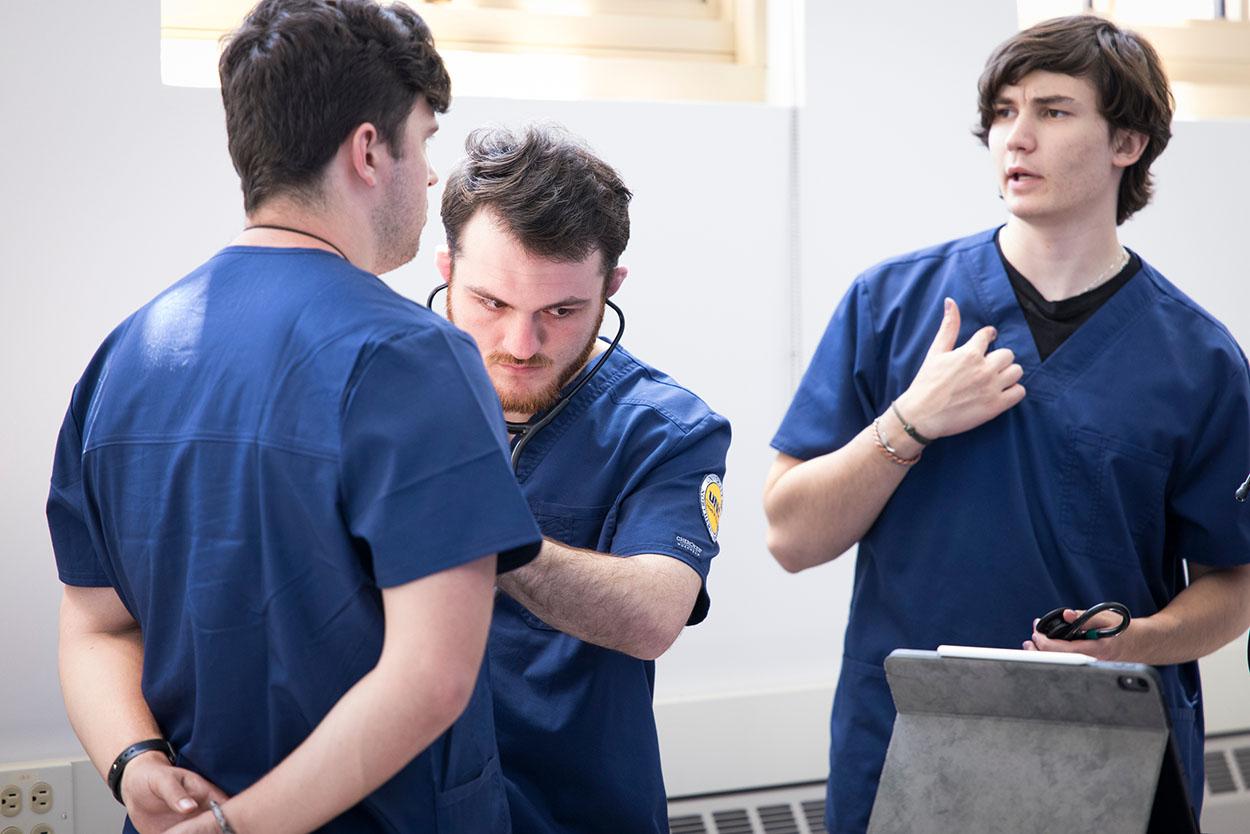

Former Colorado Gov. John Hickenlooper on Tuesday met with survivors of the Columbine High School attack and other survivors of the state’s mass shootings just four days before the 20th anniversary of the Columbine massacre.
Hickenlooper, who is seeking the 2020 Democratic presidential nomination, has been touting gun control measures he signed following the 2012 Aurora Theater Shooting, which killed 12 people. But Tuesday’s event had a somber tone and barely touched on the reliable Democratic vote-getting issue of gun control. Instead, it veered into an inconclusive discussion of the need for improved mental health services for both the victims of mass shootings and for potential perpetrators.
Hickenlooper said the federal government needs to enact universal background checks and a national red flag law.
The Colorado bill recently signed by Gov. Jared Polis allows a family member or law enforcement to petition a court to temporarily remove someone’s guns for up to a year if they are a threat to themselves or others. Beyond gun laws, the group at the First Baptist Church of Denver emphasized the emotional ripple effect this violence has on families, schools and communities.
Hickenlooper noted recent suicides of survivors of last year’s Parkland High School shooting and of the father of one of the children killed in the Sandy Hook massacre. He asked the group whether the federal government could ensure broader and longer-lasting mental health support for those affected by attacks.
“When [the nation experiences] a tragedy, we all, in some sense experience it,” he said. “And I think that there's a shared responsibility to make sure that we reach out to those who have gone through the worst experience of their life and help them get through it.”

Tom Mauser, whose son Daniel was one of 13 people killed at Columbine, worries there’s been too much emphasis on “be strong” after recent attacks.
“You need to balance that with the reality that some people are still traumatized,” he said.
Democratic state Rep. Rhonda Fields, whose district includes the site of the Aurora massacre and whose son was killed earlier in an unrelated homicide, is concerned that resources aren’t getting to those who need them.
“There is a ripple effect when it comes to mass shootings,” she said. “I don’t know if people know how to ask for help sometimes because the focus seems to be on the parents or the students who were right there.”

Coni Sanders, whose father, Dave Sanders, was the lone teacher killed at Columbine, now runs a mental health provider. She said she’s seen improvements in the system after 20 years.
Sanders worries about the underfunded mental health system in general. She counsels domestic abusers and others referred by courts but said it’s almost impossible for people with mental health issues to find help outside the criminal justice system. Absent a threat that they may imminently harm someone, they’re often waved away, she said.
“Unless you go to an emergency room and actually are in crisis, there’s no help,” Sanders said.
Mauser added that people often deflect calls for gun control with references to mental health but said that truly tackling mental health issues will cost a great deal of taxpayer money.
Hickenlooper, who noted that the state invested $30 million more in mental health care after Aurora, said discussion of mass shootings often centers around gun control, which, he said, is good. But, he added, they need to be broader.
“This is something we really haven’t addressed,” Hickenlooper said.
The 2020 hopeful also met with leaders of metro black churches where he promised that if he is elected president, he would issue an apology from the federal government to the African-American community for slavery.
Hickenlooper said he supports legislation working its way through the federal government to provide some sort of reparations for descendants of slaves.
“The first step of reparations is fixing what should have been done 50 years ago,” he said. “Equal housing, equal job opportunity, equal educational opportunity.”
African-American church leaders in the Greater Metro Denver Ministerial Alliance officially endorsed Hickenlooper Tuesday.
CPR's Natalia Navarro contributed to this report.








